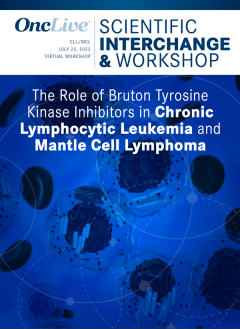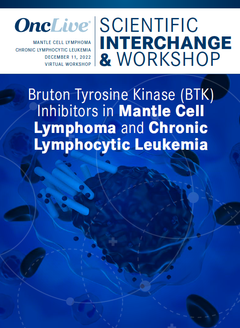
Dr. Lunning on Trials Evaluating BTK Inhibitors in CLL
Matthew A. Lunning, DO, FACP, discusses trials evaluating BTK inhibitors in chronic lymphocytic leukemia.
Episodes in this series

Matthew A. Lunning, DO, FACP, assistant vice chair of research, the Department of Medicine, assistant vice chancellor of Clinical Research, associate professor of Internal Medicine, the Division of Hematology and Oncology, the University of Nebraska Medical Center, discusses trials evaluating BTK inhibitors in chronic lymphocytic leukemia (CLL).
Ibrutinib (Imbruvica)-based combinations have driven much of the data for clinical trials in CLL, such as the phase 2 CAPTIVATE trial (NCT02910583) with fixed-duration therapy in treatment-naïve patients with CLL, Lunning notes. In CAPTIVATE, patients in the fixed-duration cohort received an ibrutinib lead-in for 3 cycles, followed by 12 cycles of venetoclax (Venclexta) plus ibrutinib, Lunning says. CAPTIVATE marked one of the first trial exploring minimal residual disease [MRD] approaches in terms of determining which patients had undetectable MRD and what the threshold was for undetectable MRD, Lunning explains. The trial also aimed to prevent hospitalizations by ramping up dosing of venetoclax, Lunning adds.
Since CAPTIVATE explored a time-limited therapy, rather than continuous therapy, it opened the possibility for these agents to remain as treatment options in later lines for these patients, Lunning continues. The CAPTIVATE trial also looked at outcomes for patients with deletion 17P and TP53 mutations to determine if fixed-duration therapy could elicit favorable outcomes in these high-risk patients, Lunning concludes.













































